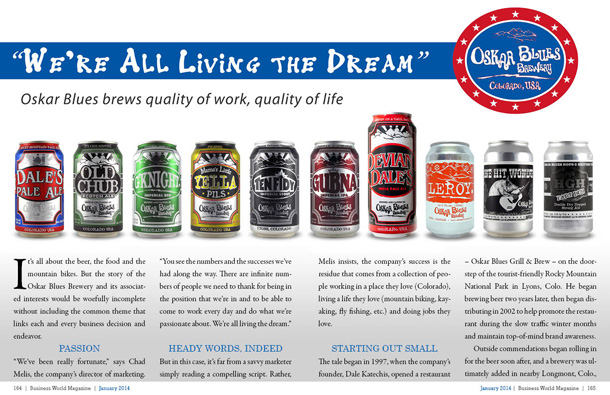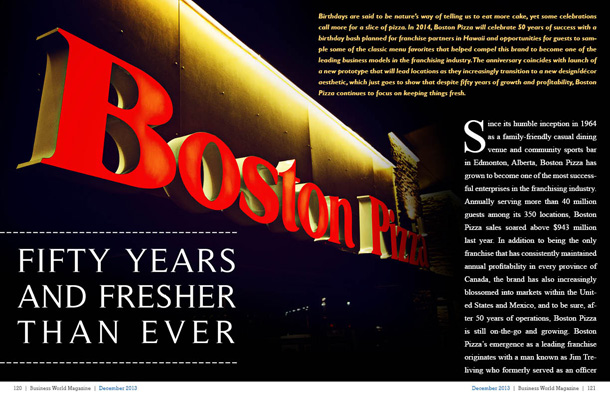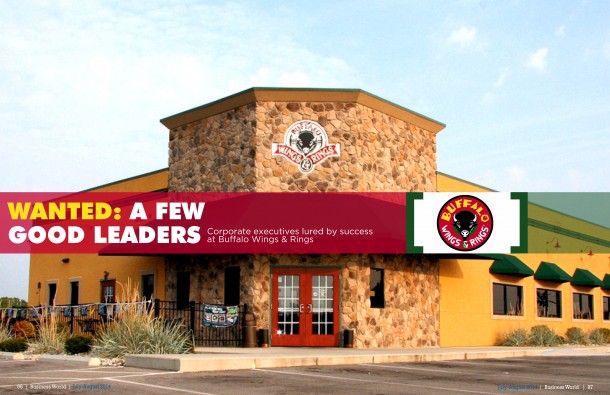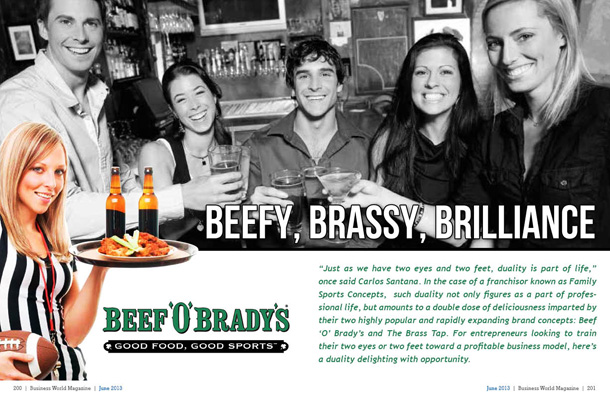“We’re All Living the Dreamâ€
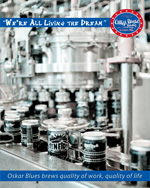
Oskar Blues brews quality of work, quality of life
It’s all about the beer, the food and the mountain bikes. But the story of the Oskar Blues Brewery and its associated interests would be woefully incomplete without including the common theme that links each and every business decision and endeavor.
Passion.
“We’ve been really fortunate,†says Chad Melis, the company’s director of marketing. “You see the numbers and the successes we’ve had along the way. There are infinite numbers of people we need to thank for being in the position that we’re in and to be able to come to work every day and do what we’re passionate about. We’re all living the dream.â€
Heady words, indeed.
But in this case, it’s far from a savvy marketer simply reading a compelling script. Rather, Melis insists, the company’s success is the residue that comes from a collection of people working in a place they love (Colorado), living a life they love (mountain biking, kayaking, fly fishing, etc.) and doing jobs they love.
STARTING OUT SMALL
The tale began in 1997, when the company’s founder, Dale Katechis, opened a restaurant – Oskar Blues Grill & Brew – on the doorstep of the tourist-friendly Rocky Mountain National Park in Lyons, Colo. He began brewing beer two years later, then began distributing in 2002 to help promote the restaurant during the slow traffic winter months and maintain top-of-mind brand awareness.
Outside commendations began rolling in for the beer soon after, and a brewery was ultimately added in nearby Longmont, Colo., after the initial space in Lyons was outgrown and the hand-crafted beers had gradually taken over as the primary magnet for the business.
An ironic occurrence, Melis concedes, considering Katechis’s first foray into beer-making had come years earlier when he was a student at Auburn University and mixed his first brew – derisively labeled “Dale’s Pale Ale†by his student cohorts – in his bathtub.
“It’s very cool how things have come full circle,†Melis says. “The other spinoffs we’ve done, like making our own bikes (the company also operates Reeb Cycles), helps support the beer and people create great bike rides and experiences on the trails, and then come together socially to share the beer.
“We help create all those great experiences that complement each other by staying true to what we’re passionate about. Tying all those things together has been really fun and I feel like that has been a success part of our marketing and our identity.â€
As for that identity, don’t expect to get a straight answer when it comes to the Oskar Blues name.
Ever the image-builder, Melis is coy when discussing the name’s origin and admits to concocting a different story each time he’s asked, then amusing himself when those tales get definitively retold.
“It’s not really a part of the story that we talk about too often,†he says.
“We tell a story about stumbling upon the original script for the Blues Brothers movie, where there was a third brother named Oskar. At least that’s the one I’m using today. There are a couple other versions that we’ve come up with, but they’re all just kind of just like that. It’s been more fun listening to people tell us where it came from. We try to answer that one and keep a sense of humor about it.â€
THE GOSPEL OF CANS
The irreverent attitude stretches to the names of the beer products as well, which include Dale’s Pale Ale, Mama’s Little Yella Pils, Old Chub, Deviant Dales, G’Knight among the year-round products, Gubna and Ten Fidy as seasonals and B Stiff Root Beer, Chaka and Deuce as specialty products.
Not to mention an against-the-grain decision to package the beers in cans, rather than bottles, thanks to assistance from the Ball Corporation – the world’s largest beverage canning company. A decision which, Melis says, triggered a whole new necessity for educating consumers on the merits of cans.
“When we put that hoppy Dales Pale Ale in a can, it was laughable,†he says. “We weren’t just talking about the flavor of the beer or the price of the beer. It was, hey, the can is better for the beer, it’s better for the beer drinker, it’s better for the environment. When you put the beer in front of somebody and have them crack it open, and when they smell the hops come out they do that double-take and then you have their attention and you can educate them about the advantages of a can. Education has always been a part of how we go to market and it gave us a mission.â€
The company’s good-life empire broke new ground in 2012 when it opened a brewery in Brevard, N.C., a town of 8,000 people in the state’s rural southwest that’s been nicknamed “land of waterfalls.â€
Katechis had a connection to the area through a friend that ran a local music festival, and the more the idea was pondered, the more it was clear that the area reminded him an awful lot of home – thanks to its scenic mountain bike trails, great fishing and small-town Americana feel.
KEEPING IT REAL
Still, the move east in no way signals a desire for a world domination.
“The idea of franchising is not really appealing,†Melis says. “What gets us off, coming to work and fired up every day is being engaged and being hands on. We don’t really outsource anything. Everything is done in house. We’re into being hands-on and being part of the process and growing something from nothing, so the idea of franchising is not at all appealing to what we do and what drives us. It’s not in our core.â€
Another core item: Giving back.
Oskar Blues was instrumental in the formation of a craft beer-related curriculum at Blue Ridge Community College in Flat Rock, N.C., from which 12 graduates have subsequently been hired either at the Brevard facility or at other area brewing interests.
A similar curriculum is being discussed with appropriate entities at Katechis’s alma mater, Auburn University, but the flagship give-back project – Oskar Blues CAN’d Aid Foundation – strikes a more pertinent chord in the aftermath of the devastating floods in Colorado in 2013.
The foundation was created in September as a way to develop national partnerships to maximize fundraising efforts for the communities of Lyons and Longmont, which were particularly hard hit.
Between Sept. 15 and Dec. 31, the foundation raised $535,000.
“We have a philanthropic organization and we had plans to do some things in 2014, but the flood that happened in Colorado really just kicked us in the ass and forced us to do it a few months early,†Melis says. “We took that challenge and went and got a 501 (c)3 certification, created that company from scratch and just went out and started raising funds. The goal of that foundation was to mimic how we operated on the business side, which is execute very quickly. The goal was to get that money in and get that money out.â€

